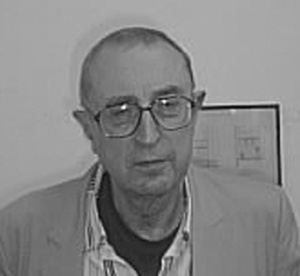Difference between revisions of "Antony Grey"
Ross Burgess (Talk | contribs) (Adding some links etc) |
Ross Burgess (Talk | contribs) (→References: Removing "Articles with no pictures" category) |
||
| Line 34: | Line 34: | ||
[[Category:Campaigners]] | [[Category:Campaigners]] | ||
[[Category:2010 deaths]] | [[Category:2010 deaths]] | ||
| − | |||
[[Category:1927 births]] | [[Category:1927 births]] | ||
Revision as of 16:43, 6 January 2014
Antony Grey (1927–2010, real name Anthony Edgar Gartside Wright) was an English gay rights activist. He was born in Gatley, Cheshire, but his family moved to Sheffield when he was nine. After graduating in history at Magdalene College Cambridge in 1948, he worked as a sub-editor on the Yorkshire Post before moving to London to work as a press officer at the British Iron and Steel Federation in 1949. This gave him experience of parliamentary and media lobbying, and while there he read for the bar. Although being admitted as a barrister at the Middle Temple in 1957, he never practised at the bar but remained at the Federation until 1961. After leaving it, he worked briefly in PR at the London Press ExchangeIn 1958, he began volunteering for the Homosexual Law Reform Society (HLRS), becoming its Honorary Treasurer in 1960, and Secretary of the HLRS and the Albany Trust in 1962. At that time it was thought inappropriate for an openly gay man to hold this position, so he concealed his homosexuality, and adopted the name Antony Grey for use in his gay campaigning activities.
He campaigned tirelessly for the decriminalisation of gay sex, as advocated in the Wolfenden Report, organising support for the various attempts at law reform, culminating in the passing of the Sexual Offences Act 1967. Though it was a major step forward, Grey always regretted the compromises made in getting the act through parliament.
In 1970 he became secretary of the Sexual Law Society (successor to the HLRS). He was Director of the Albany Trust from 1971 to 1977. He worked with (and often served on the committees of) a number of voluntary organisations including the National Council for Civil Liberties (now Liberty), the British Association for Counselling and Physiotherapy, the National Association of Voluntary Hostels, the Josephine Butler Society, and the Defence of Literature and the Arts Society.
In 1998 he was awarded the Pink Paper Lifetime Achievement Award and in 2007 he was elected as Hero of the Year by Stonewall supporters.
He met his partner, Eric Thompson, in 1960 and they lived together until Antony Grey's death. In 2008 they became civil partners. They had difficulty finding a place to live together at first, but in 1961 eventually found a flat at 121 Broadhurst Gardens, West Hampstead. This was the road at the other end of which Esmé Langley then lived. Sixty years earlier, Frederick Rolfe (Baron Corvo) had lived at number 69 when he wrote Hadrian the Seventh [1]; and subsequently Laurence Collinson, playwright, transactional analyst, and prominent member of the Gay Liberation Front lived at 123.
Grey's papers are deposited in the Hall-Carpenter Archives at the London School of Economics.
Publications
Grey's account of the way the law was reformed was published on 27 July 1992 - the 25th anniversary of the day the Sexual Offences Act became law - as Quest for Justice: Towards Homosexual Emancipation, Sinclair-Stevenson, London. ISBN 1-85619-136-2. (It is now available as an e-book: ISBN 978-1-446-43409-3.)
It was followed in 1993 by Speaking of Sex, Cassell, London, ISBN 0-304-32696-8; and in 1997 by Speaking Out: Writings on Sex, Law, Politics, and Society, 1954-95, Cassell, London, ISBN 0-304-33340-9.
In December 2008 he circulated privately to his family and friends a memoir, Personal Tapestry: woven from the memories of A E G Wright (Antony Grey), The One Roof Press, London. This brought together the personal and public sides of his life, and copies are held by the British Library and the libraries of Magdalene College, Cambridge, and the London School of Economics.
In his later years he blogged as 'Anticant': see http://antarena.blogspot.co.uk/
Obituaries
Obituaries in the main-stream press included those in The Times on 5 May 2010 (page 62) and in the Guardian on 4 June 2010 (page 36) [2].
For the gay press see those in Pink News [3], [4]
Other sources include Therapy Today [5] and the BBC's Last Word [6]
References
- ↑ The Pink Plaque Guide to London, <Michael Elliman and Frederick Poll, 1986, page 169
- ↑ http://www.theguardian.com/world/2010/jun/03/antony-grey-obituary
- ↑ http://www.pinknews.co.uk/2010/05/05/comment-peter-tatchell-pays-tribute-to-a-giant-of-the-gay-movement/
- ↑ http://www.pinknews.co.uk/2010/05/04/first-gay-rights-activist-antony-grey-dies-aged-82/
- ↑ http://www.therapytoday.net/article/show/1963/
- ↑ http://www.bbc.co.uk/programmes/b00s7f9w
